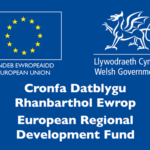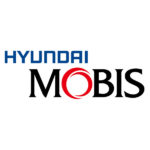The 17th international conference on Petroleum Data Integration, Data and Information Management took place last week in Houston, Texas. From the many conversations that took place at our exhibition stand, and in the conference hall itself, our team has distilled the key takeaways from this major E&P data management event.
Ian France, Technical Director
Virtualization
“Virtualization was a growing theme this year. It enables different systems to be accessed via a virtualization layer, rather than trying to maintain a centralised corporate data store. This is seen as providing a more affordable solution for organisations, and avoids problems of the central store being out-of-date. However, it is unclear how virtualization tackles the problem of multiple versions of the data, nor the problem of data stored in arbitrary spreadsheets.”
Data maturity and quality
“A big theme at the conference was managing data quality and assessing how much clean-up and processing has been conducted on it. A connected theme was how to achieve and maintain a canonical version of “the truth”, or as close as possible. It was discussed in the context of quality, trust and usage.”
Excel data storage
“I heard much concern about the complexity of developing loaders for Excel-based data. A big issue is that Excel documents can often be changed by the user, which requires changes to the loader mappings. If these mappings are hard-coded in Java, or C#, this can be an expensive undertaking. One simple way of solving this is to have a staged approach, where the complex loader (e.g. Excel to PPDM) uses a company-standard Excel spreadsheet or other format. This is the only loader mapped directly to the MDM, so common business rules, validation and so on are implemented only once. The user then has to copy or convert their data into the standard Excel first. Another approach is to have a flexible loader which can be swiftly changed to accept the new format.”
Richard Cook, E&P Technical Data Lead
Making data more widely available
“I saw increasing confidence in organisations’ data. In particular, there is a move towards making it available for use more widely and to more areas of the business, democratising data access and reducing the time taken to use the data. The conference shared examples of faster and better business decisions due to integrated high quality data. For instance, previous experience was used to avoid drilling problems, or reducing time to answer a business question from days to minutes.”
Data management continuity
“As raised at previous conferences, the data management industry faces a decline in knowledge as experienced data managers retire. In particular, the conference discussed the benefits of a professional qualification and the need to attract younger people.”
Karl Glenn, Business Development Director
Improving integration with Petrel
“There were many informal discussions around the need to improve loading and general integration with Petrel. A number of operators highlighted a requirement for a solution to building custom loaders, exports and integration between Petrel and many non-SIS sources and targets. I get the impression this need is growing.”
Popular data standards.
“WITSML, PRODML, RESQML and PPDM were among the standards discussed at our booth. PPDM and WITSML were very often mentioned as being good options for a canonical data store and data transfer respectively. Everyone seemed to recognise the problem that both standards are hardly ever used in a consistent way by companies. There is a definite need to load to and from them in a flexible and easily configurable manner.”
Chris Griffin, Senior Consultant
Risk management
“I saw a growing interest in identifying and managing risk. Of course, risk is inherent in data migrations across all industries, but is particularly relevant when looking at E&P technical data. I talked to a number of operators who are faced with large-scale migrations in the next twelve months and all recognised the value in a formal data migration methodology. This needs to be coupled with leveraging tools and expertise to deliver projects on time, to budget, and to business needs.”
Did we miss you at PNEC, or were you unable to attend? To find out more about our expertise in E&P data management, please get in touch.











